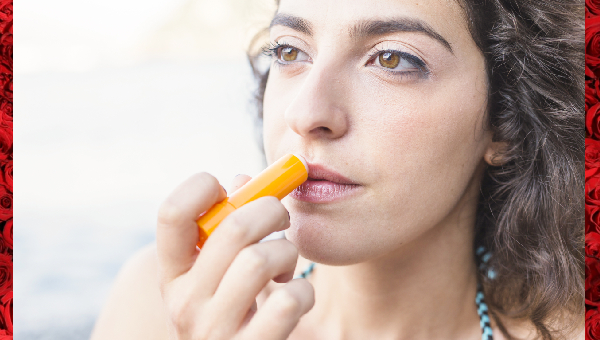Top Stretch-Mark Creams That Truly Nourish and Hydrate Your Skin
Lip Balm vs. Lip Oil: What’s the Best for Moisturized Lips?

Lip care decision-making between lip balms and lip oils can be a bit confusing because one does promise to provide hydration and nourishment to your lips, but they achieve this goal in significantly differing ways. Knowing the distinctions between them can guide you to the most appropriate choice, depending on what you need, especially with changing weather or with the particular challenges your lips face: dryness, cracking, or sensitivity. Let's dive into the world of lip balms and lip oils by comparing their ingredients, benefits, how they work, and when to use each. At the end of this article, you'll know which product is best for your lips and how to incorporate them into your skincare routine for maximum results.
What is Lip Balm?
This is a must-have for many of its users, who in turn treat their dry cracked lips. It comes in small tubes, jars, and sticks. The texture is thick and waxy. It is a barrier lock over your lips, trapping moisture and preventing the wind, cold, and heat from getting in.
Ingredients found in Lip Balm
Many more contain additional ingredients that address specific concerns, such as adding SPF to protect from the sun, antioxidants like Vitamin E that target free radicals, and others that include a small concentration of salicylic acid or sugar crystals, which act as exfoliants and dead skin eliminators. Lip balms can be composed of different blends of various waxes, oils, and emollients designed to seal moisture in. The most common ingredients that come in most lip balms are:
- Beeswax: Natural wax whose properties will create a barrier on lips to prevent moisture loss.
- Petrolatum: A petrolatum derivative obtained from petroleum. This is an occlusive that traps moisture beneath the balm layer.
- Shea Butter: With high fatty acids and vitamins, Shea butter will prove hydrating and soothing for dry, parched lips.
- Lanolin: This will work like a moisturizing agent, as it mimics the oils of the skin. There will be smoothness in the lips.
- Add fragrances: To prevent the lip balm from drying, peppermint oil, eucalyptus, or lavender are added in some.
How Do Lip Balms Work?
Lip balm works essentially by creating a protective layer on the lips, which locks in the moisturizing agents and protects your lips against environmental factors that will accelerate their drying out. It is mainly effective in dry or cold climates since it minimizes the likelihood of chapping. Since lip balms are pretty thick, they can be a little too heavy on the lips. For overnight repair or when outside and one requires a little extra protection, this is more than perfect.
On the contrary, lip balm is great at keeping moisture locked into the lips but leaves behind a sticky feel that does not help if it doesn't go deep enough to reach extremely dry lips. It is perfect for getting over the exterior of your lips, but it doesn't go very deep to provide lasting moisture.
What is Lip Oil?
Lip oil, the newish addition to the lip care family, has gained immense popularity due to its liquid feel and rich texture. Unlike balm, which serves the purpose of only sealing in the moisture, lip oil works more profoundly by penetrating into the skin and hydrating it. The lip oils do finish with a slick shine look; the texture is soon absorbed into the lips, unlike balm.
Typical Ingredients Used Lip Oil
Lip oils are full of natural oils. Lip oils can offer moisturizing as well as additional secondary skincare benefits-they do contain a lot of nutrient-rich, natural oils. Some of the key ingredients used in lip oils include:
- Jojoba Oil: Jojoba oil is near body oils. It's light in texture as it is nongreasy and has an excellent hydrating property agent that would not clog pores.
- Argan Oil: Argan is rich in fatty acids and vitamin E. Which intensely nourishes and repairs the dry lip skin.
- Coconut Oil: A long-time favourite of natural beauty products, coconut oil is richly hydrating and soothing to dry or sensitive lips.
- Rosehip Oil: There are vitamins A and C in rosehip oil. It Helps rebuild cells and gives texture to the lips.
- Squalane: This hydrating agent is obtained from olives or sugar cane and holds lots of moisture due to its mimicry of the natural oils in the body.
How does Lip Oil work?
Lip oils are more intense moisturising and nourishing treatments compared to balms, as oils are more penetrative than waxes, hence pushing deeper into the outermost layers of the lip for the hydration to be pushed in from within. A good nongreasy lip oil feels comfortable enough for a long day, and a nice glossy finish keeps lips looking full and healthy. Some lip oils have a tint that gives colour to the lip and moisturizes them.
One of the best advantages of lip oils is that they do not give the heavy and sticky feeling of traditional lip balms; therefore, they are perfect for people who may prefer their lips' touch to be a little more natural and light. Similarly, nourishing oils within lip oil formulation heal and protect the skin's barrier, hence improving the overall health of your lips over time.
Guide Comparison Between Lip Balm and Lip Oil
Although both lip balm and lip oil have the function of moisturizing lips, they approach their objectives and textures in rather different ways. Here's a breakdown of the differences:
- Texture: Lip balm is more buttery, waxy and heavier for your lips. Perfectly suitable when the weather is quite cold and dry, or you must wear it while sleeping at night when your lips require a strong protector. Lip oil is light and silky. Perfect to be worn throughout the day so that it shines lighter and does not give you this heavy feeling around your lips.
- Function: The lipstick is primarily a barrier type of emollient as it forms a protective layer on the surface while preventing moisture loss. It does not penetrate deep into tissues. The lip oil is penetrated into the lips to moisturize from within. Besides moisturizing, the lip oil also nourishes and gives vitamins and fatty acids to the lip tissue, which makes it better for long-term health.
- Composition: Most lip balm compositions are all about creating that protective barrier. So, they contain ingredients like petrolatum and beeswax, which can sometimes feel sticky or heavy. The base focus of lip oil is hydration and nourishment, using lightweight and fast-absorbing oils such as jojoba, coconut, and squalane.
- Longevity: Lip balm is going to stay much longer on the lips due to its consistency. It does not dry out fast when you are exposed to harsh weather conditions. Lip oil, although moisturizing, needs to be reapplied several times more because it dries faster and gives a glossy and less weighty finish.
Real Drawbacks of Each
Both products are very effective, but like any other product they come with their downsides:
- Drawbacks of Lip Balm: Lip balms can cause your lips to rely on them if you use them a lot. Things like menthol, camphor, or fake scents might bother the tender skin on your lips. They cannot hydrate from deep layers, so they are not as effective in severely dehydrated lips.
- Lip Oil Disadvantages: Lip oils do hydrate, but they do not last as long as balms, especially in the freezing wind outside or if it's very cold. They will have to be reapplied quite often and lack the potency on lips so severely damaged by extreme weather.
Which One Should You Choose?
Ultimately, it is your lips’ unique characteristics and the specific needs you expect the product to fulfil that will determine what you should get. However, when it comes to very dry or cracked lips, a balm is the way to go; balm is far thicker than any lip gloss, for example. A balm can form a barrier over the lips filling in the moisture plus protecting against rough environmental abuse during windy or wintry seasons.
Lip oil is your best choice if you want a light, glossy finish or if your lips require just a bit of hydration throughout the day when you don't have time for a heavy balm. Lip oils work beautifully for daily wear, especially when the lips are occasionally dry, and you need them to be naturally coloured.
Can I use both?
Absolutely! There's no rule that you need to use either lip balm or lip oil. Then again, many find that using the pair of them on alternate occasions or at various points during the day works for them best. You might start your day with a lightweight, nourishing lip oil and have a more substantial lip balm at bedtime to lock everything in tightly overnight.
Conclusion
There is no easy answer on when to opt between lip balm and lip oil. Each touts something unique and the other in different situations. The best lip balm will create a sort of moisturizing barrier, which tends to be good for rough conditions or very dry chapped lips. Lip oil provides deep hydration and nourishment with a lightweight, glossy finish that makes it ideal for daily use. So the best lip balm for you will depend on your goals and the specific needs of your lifestyle. Whether you prefer the more robust protection of a balm or the rich hydration of oil, either product can be part of a healthy lip care routine to keep moisturising that Parched Skin.








